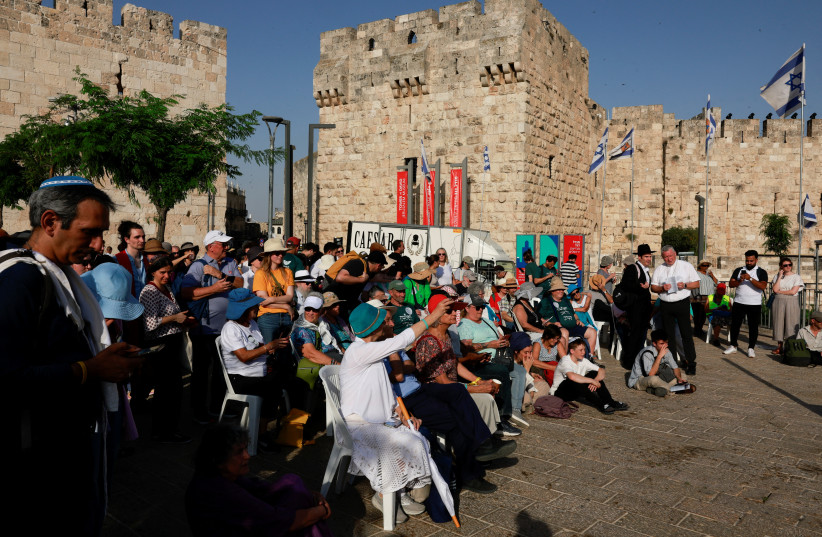Eight IDF soldiers were tragically murdered on Saturday in an explosion of an armored vehicle in Rafah.
We have seen these massive losses several times since this war began. The military is investigating whether the armored vehicle was damaged by an explosive device attached under it, to the side of it, or by a malfunction in the explosives being carried in the vehicle.
While driving through a luxurious area of the neighborhood, a massive explosion was heard, which caused the vehicle to explode and catch fire.
All of the occupants of the vehicle, eight combat engineering soldiers, were killed on the spot. The vehicle was severely damaged, likely also because its exterior sides contained large amounts of explosives, including demolition blocks, mines, and more.
The only name released from the group of eight soldiers killed was that of Capt. Wassem Mahmoud, a Druze Israeli who proudly served his country until his last breath.
The tragic deaths of Mahmoud and the seven other IDF soldiers underscore a pressing issue in Israeli society that must be urgently addressed: racism.
Druze citizens are not treated accordingly
Shortly after the announcement of Mahmoud and the other soldiers’ deaths, Sheikh Muafak Tarif, head of the Druze community in Israel, released a statement, saying that the choice to serve Israel is equally valuable among all of the country’s citizens, but Druze citizens are not treated accordingly.
“The Druze community pays a very heavy price in this war once again. Mahmoud… joins a long list of fallen Druze who sacrificed their lives for the security of the state since the outbreak of the war,” he said.
“Once again, we discover the partnership and equality in bearing the burden and loss on the battlefield," the sheikh said. “This partnership and equality must also be in everyday life, but sadly, this is not the case. The Druze community must be equal partners not only in battle and mourning but also in life.”
Tarif is correct. As the nation mourns these brave souls, it is imperative to reflect on the broader social dynamics at play, particularly the discrimination faced by Israeli Arabs.
Mahmoud, a 23-year-old from Beit Jann, exemplified the highest values of dedication and sacrifice. Despite being injured at the start of the war, he postponed his surgery to continue serving his country.
His story is a testament to the commitment and patriotism of many Israeli Arabs who serve in the IDF and contribute significantly to the nation’s security and well-being.

However, their contributions are often overshadowed by systemic racism and social discrimination that persist in Israeli society.
The courage and dedication of Israeli Arab soldiers should serve as a powerful reminder of the need for inclusivity and equality.
Prime Minister Benjamin Netanyahu and other leaders have paid tribute to the fallen soldiers, emphasizing the unity and collective grief of the nation. This moment of national solidarity should also be a catalyst for addressing the disparities that Israeli Arabs face. The contributions of soldiers like Mahmoud should not only be recognized in times of tragedy but should pave the way for broader societal changes.
Israeli society must acknowledge and combat racism to create a more inclusive and cohesive nation.
Educational programs, policy reforms, and community initiatives must be implemented to address and dismantle systemic racism. These efforts are both a moral imperative and essential for national unity and social stability.
In the wake of this tragedy, let us honor Capt. Waseem Mahmoud’s memory by striving for a society where every citizen is valued and respected regardless of their background. Israel’s strength lies in its diversity, and by tackling racism head-on, the nation can truly live up to its democratic and ethical ideals.
This is an urgent task, and we owe it to the memory of those who have given their lives for the country.
As we move forward, let us not forget the ultimate sacrifices made by those like Mahmoud. Their lives and stories must fuel our efforts to build a society that embraces all its members, ensuring that their legacy is one of unity, respect, and progress.
This transformation is essential for Israel’s enduring peace and resilience, ensuring that it remains a homeland where all its citizens can thrive together.
